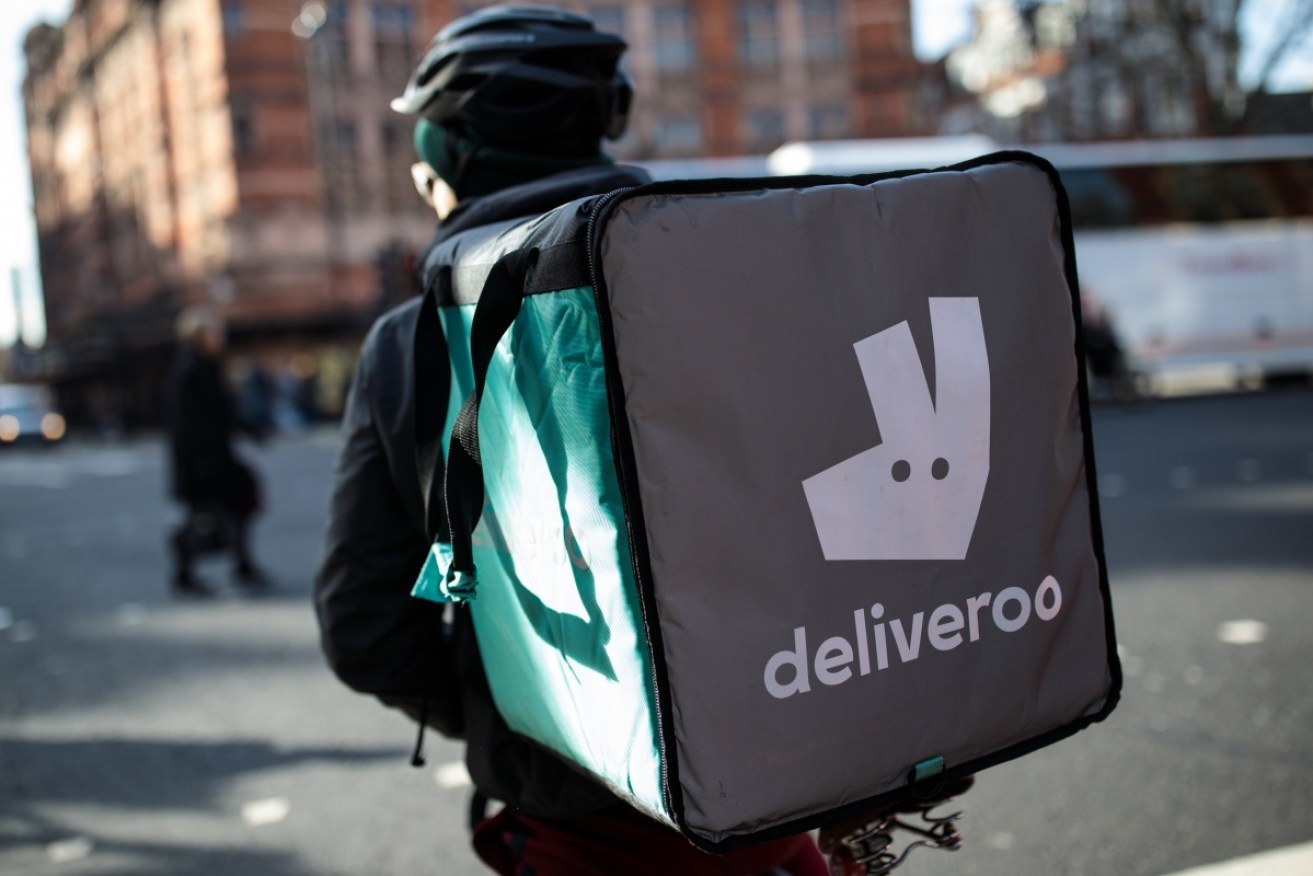Rider wins landmark case against ‘callous’ Deliveroo as gig economy workers push for rights


Deliveroo has lost a landmark case against the Fair Work Commission. Photo: Getty
Deliveroo has been found to have unfairly dismissed a meal delivery driver in a ruling that could trigger a massive wave of backpay claims.
The company terminated the contract of Brazilian rider Diego Franco in April 2020 after a computer algorithm determined he had been delivering food between 10 and 30 per cent slower than comparable riders.
But the Fair Work Commission ruled on Tuesday that the reason for the dismissal was “not sound, defensible, or well founded”, and that Mr Franco should be considered an employee of the company and not an independent contractor.
If the appeal is upheld, Mr Franco could be entitled to about three years of unpaid leave entitlements (the length of his employment with Deliveroo) and his case could encourage others to make similar claims in the pursuit of unpaid benefits.
Fair Work Commissioner Ian Cambridge said Deliveroo’s reason for booting Mr Franco off its platform was not sound because it had neither made him aware of the delivery times that were expected of him nor told him that lateness could be used as a reason for dismissal.
“The absence of clear identification of the required delivery time standards means that the failure to deliver orders in a reasonable time could not represent a reason that was sound, defensible or well-founded,” Commissioner Cambridge said.
“Consequently, there was not a valid reason for the dismissal of Mr Franco related to his capacity or conduct.”
The commission upheld Mr Franco’s complaint of unfair dismissal and was able to do so because it found he was an employee of the company rather than an independent contractor.
Commissioner Cambridge offered several explanations for this conclusion.
Among other things, he said Mr Franco was “not carrying on a trade or business of his own” and noted Deliveroo possessed a degree of control “that strongly supported the existence of employment rather than independent contracting”.
A spokesperson for the company said it would appeal against the decision as Deliveroo was “confident that riders are engaged as independent contractors” because they “have the absolute freedom to decide whether, when and where they work”.
Tweet from @TWUAus
The commissioner also slammed the company for only informing Mr Franco of its intention to terminate his contract via email, describing its overall approach to his termination as “perfunctory” and “callous”.
Mr Franco was only given seven days’ notice despite having worked for the company for three years.
Given the dismissal was deemed unfair, Fair Work has said it will order Deliveroo to reinstate Mr Franco to its platform and compensate him for lost earnings.
But Mr Franco told reporters in Sydney he had yet to decide whether he would return to the platform.
“Justice was made today,” he said during a press conference.
“Hopefully, for the best, we will have better conditions for all riders in and outside Australia.
“That was a big step towards the fairness of hard workers such as myself and thousands of other riders who provide a great service for those companies that makes millions, if not billions, of dollars each and every year.”

The Fair Work Commission said Deliveroo had taken a “callous” approach to its termination of Diego Franco’s employment. Photo: Transport Workers Union
Mr Franco was represented by the Transport Workers Union.
Its national secretary Michael Kaine told The New Daily the Fair Work Commission’s ruling was effectively calling “full time on exploitation in the gig economy”.
He said Mr Franco’s case was another wake-up call for the federal government to set up an independent body “that can inquire into this type of work and put in place appropriate protections and obligations so that workers have rights”.
“The federal government can’t ignore this forever,” he said, referring to a spate of delivery driver deaths over the past six months.
As to the case itself, University of Sydney law professor Shae McCrystal said of great significance was the commissioner’s dismissal of the argument typically put forward by gig economy platforms that drivers could not be considered employees if they worked across different platforms.
Commissioner Cambridge said in his decision that this did not stack up “in the context of the modern, rapidly changing workplace”.
Professor McCrystal said this was a “progressive” interpretation that recognised the nature of gig economy work meant employees were almost forced to use multiple apps to make ends meet.
She said Tuesday’s ruling could have implications for Deliveroo’s payroll tax obligations while also encouraging others to pursue claims against the meal delivery platform.
“What would then happen is you would get individuals making claims to say, ‘I’ve not been given my legal entitlements, I’ve not not been paid the correct minimum wage I should have been paid,” Professor McCrystal said.
“Or you might get the Fair Work Ombudsman looking at the question, in terms of compliance with labor standards to determine that. So it would be a long process.”








